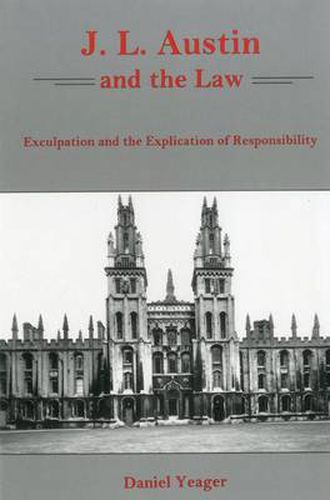Readings Newsletter
Become a Readings Member to make your shopping experience even easier.
Sign in or sign up for free!
You’re not far away from qualifying for FREE standard shipping within Australia
You’ve qualified for FREE standard shipping within Australia
The cart is loading…






In investigating the relationship between accusation and excuse, this study uncovers something about the criminal law’s peculiar way of interpreting human action. Identifying that something can move us a little closer to discovery or agreement and just what it is that is staked in criminal law. What is staked in any discussion of criminal law is the meaning and operation of ‘responsibility,’ which makes human action and its consequences so tragic. The author confronts the idea of responsibility by mapping the work of J. L. Austin onto the criminal law. Doing so entails considering the extent to which the language of criminal law can be reconciled with ordinary language, a project that entails considering whether the language of criminal law is ordinary language. This method of philosophizing attempts to get a sharpened perception of the world by seeking to understand why we speak as we do in specific speech situations. Ordinary-language philosophy presupposes that to attain knowledge of our language is to attain knowledge of whatever
$9.00 standard shipping within Australia
FREE standard shipping within Australia for orders over $100.00
Express & International shipping calculated at checkout
In investigating the relationship between accusation and excuse, this study uncovers something about the criminal law’s peculiar way of interpreting human action. Identifying that something can move us a little closer to discovery or agreement and just what it is that is staked in criminal law. What is staked in any discussion of criminal law is the meaning and operation of ‘responsibility,’ which makes human action and its consequences so tragic. The author confronts the idea of responsibility by mapping the work of J. L. Austin onto the criminal law. Doing so entails considering the extent to which the language of criminal law can be reconciled with ordinary language, a project that entails considering whether the language of criminal law is ordinary language. This method of philosophizing attempts to get a sharpened perception of the world by seeking to understand why we speak as we do in specific speech situations. Ordinary-language philosophy presupposes that to attain knowledge of our language is to attain knowledge of whatever